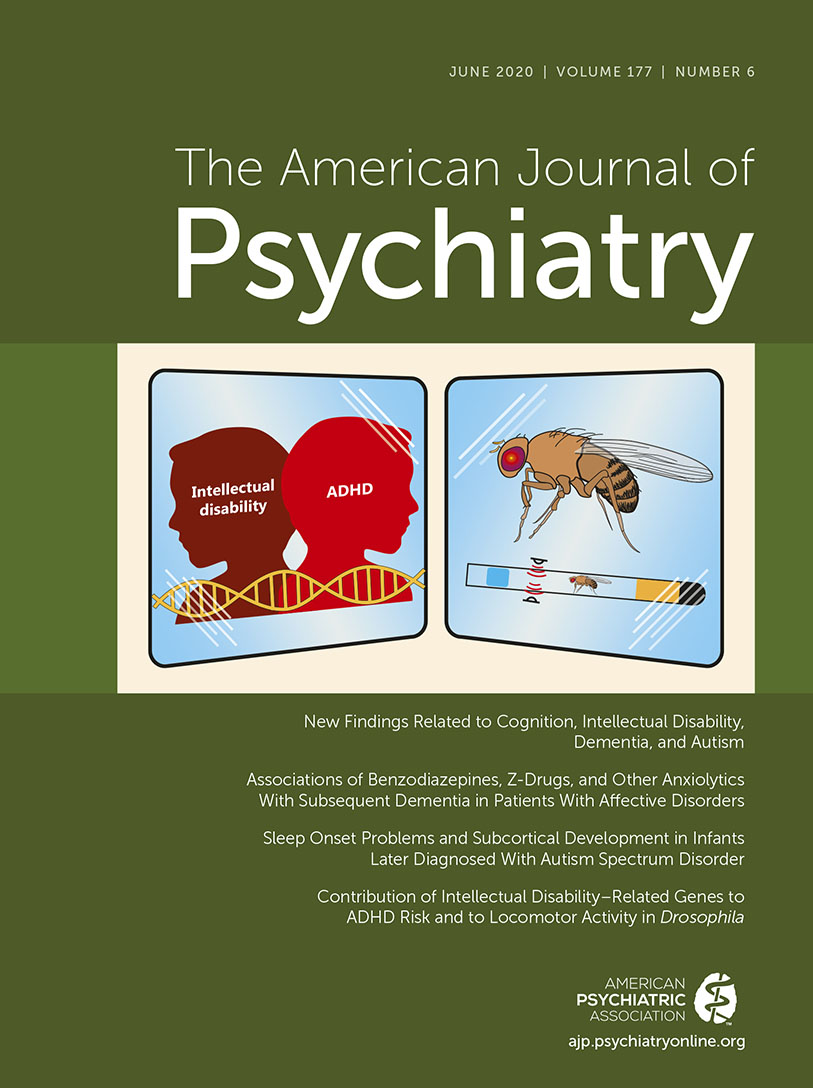An Array of Studies Addressing Cognition and Cognitively Defined Neuropsychiatric Conditions: Many More Connections Than You Might Think
Abstract
Six articles in the June 2020 issue of the American Journal of Psychiatry address the overall construct of cognition. These articles have a broad connection to cognition, which is itself a broad concept. From the experimental psychology perspective, cognition is the set of processes associated with attending, learning, knowing, and remembering. From the clinical perspective, a number of neuropsychiatric conditions are defined by the presence of cognitive impairment, with onset ranging from childhood, such as attention deficit hyperactivity disorder and intellectual disability, to later life, such as dementia. Other conditions have notable cognitive impairments even if specific cognitive impairments are not an explicit part of their formal diagnostic criteria, including autism spectrum disorder and schizophrenia. Thus, the array of articles in this issue are related to each other and also may make important points about the role of cognition in everyday functioning and the connections between cognitive impairments in neuropsychiatric conditions and in the human population in general. Further, these articles address the neurobiological substrates that have an impact on cognition, with important implications in other domains, such as genomics. Finally, through sophisticated research methods, they clarify the results of previous studies that were affected by a variety of methodological challenges.



